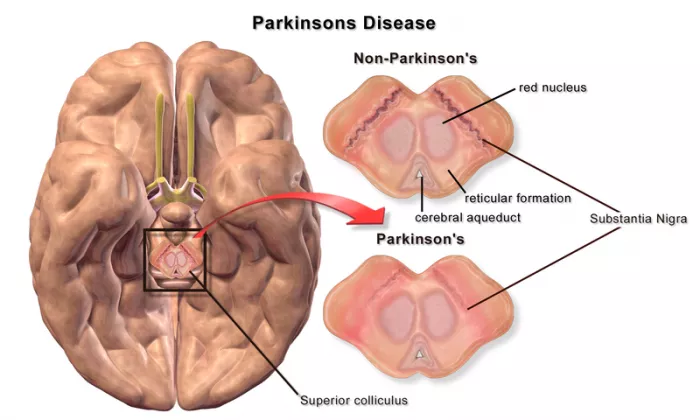A few years after the 1918 Spanish influenza pandemic, doctors around the world began to notice the increase in new cases of Parkinson's disease For more than a century, the link between viral infection and the increased risk of Parkinson's disease has been a mystery to scientists And this link is not limited to the H1N1 influenza virus behind the 1918 pandemic. Various other viral infections have also been linked to an increased risk of Parkinson's disease, from Japanese encephalitis to HIV.
At the beginning of 2020, with the novel coronavirus sars-cov-2 sweeping the world, scientists warned that neurodegenerative diseases might proliferate in the next few years. About five years after the 1918 pandemic, new diagnoses of Parkinson's disease almost tripled. Considering the prevalence of covid-19 infection, even a slight increase in Parkinson's disease cases could lead to tens of millions of additional diagnoses in the next decade.

A new study by researchers from Thomas Jefferson University and New York University tries to understand how sars-cov-2 increases a person's risk of Parkinson's disease. Richard Smeyne, the study's lead author, said the most common explanation was called the "multiple hit hypothesis". Viral infection does not directly lead to neurodegenerative diseases. On the contrary, it makes the brain more vulnerable to other risk factors, leading to diseases.
"We think of the 'multiple strikes' hypothesis of Parkinson's disease - the virus itself does not kill neurons, but it does make neurons more vulnerable to' secondary strikes', such as toxins or bacteria, and even potential gene mutations," Smeyne said.
A previous study by Smeyne found that mice infected with H1N1 influenza virus were more prone to neurodegeneration when exposed to MPTP, a molecule used to simulate Parkinson's disease like neurodegeneration in animal models. MPTP specifically targets dopamine producing neurons in the basal ganglia, so it has been used as a way to simulate Parkinson's disease in animal research for several years.
The new study focuses on a new mouse model designed with certain human receptors to infect sars-cov-2. These animals were exposed to a dose of virus corresponding to human covid-19 mild infection.
The researchers allowed the animals to recover from acute viral infection and then injected a small dose of MPTP about a month later. The dose of MPTP was so low that healthy control mice not exposed to sars-cov-2 did not show any neuronal damage.
However, in animals exposed to coronavirus, MPTP is sufficient to trigger neuronal damage patterns in the basal ganglia, similar to those in Parkinson's disease. Animals exposed to sars-cov-2 were as sensitive to MPTP damage as animals in previous H1N1 studies.
So how does sars-cov-2 infection make these neurons more vulnerable to neurodegeneration associated with Parkinson's disease? This is a huge unsolved mystery.
Whether the neurological symptoms of this novel coronavirus are the result of its direct encounter with brain cells is still controversial. Some studies have found traces of sars-cov-2 in the human brain, but it is unclear whether this will lead to problems such as brain fog related to covid-19 or cognitive decline.
Interestingly, previous studies on the H1N1 variant found that the virus did not directly infect neurons in the central nervous system, but it still increased the risk of Parkinson's disease in the MPTP experiment. This suggests that indirect neuroinflammatory mechanisms may be the reason why neurons are sensitive to the toxic effects leading to Parkinson's disease, at least in the case of H1N1 infection.
In this new study, the researchers did detect an increase in the number of microglia in the basal ganglia of mice infected with coronavirus. Microglia are a type of brain immune cells that can cause damage when they are abnormally activated.
Therefore, Smeyne and his colleagues speculate that this neuroinflammation caused by sars-cov-2 infection may make some neurons more vulnerable to subsequent attacks, thereby increasing a person's risk of Parkinson's disease. But Smeyne cautions that it is too early to say that this must happen to humans.
"First, this is preclinical work," Smeyne pointed out. "Given that there seems to be a lag of 5-10 years between any change in the clinical manifestations of Parkinson's disease in humans, it is too early to say whether we will see the same thing in humans. If covid-19 does prove to increase the risk of Parkinson's disease, it will be a major burden on our society and medical system. However, we can predict it by advancing our understanding of potential 'second strike' and mitigation strategies This challenge. "
The new study was published in dyskinesia 》In the magazine.